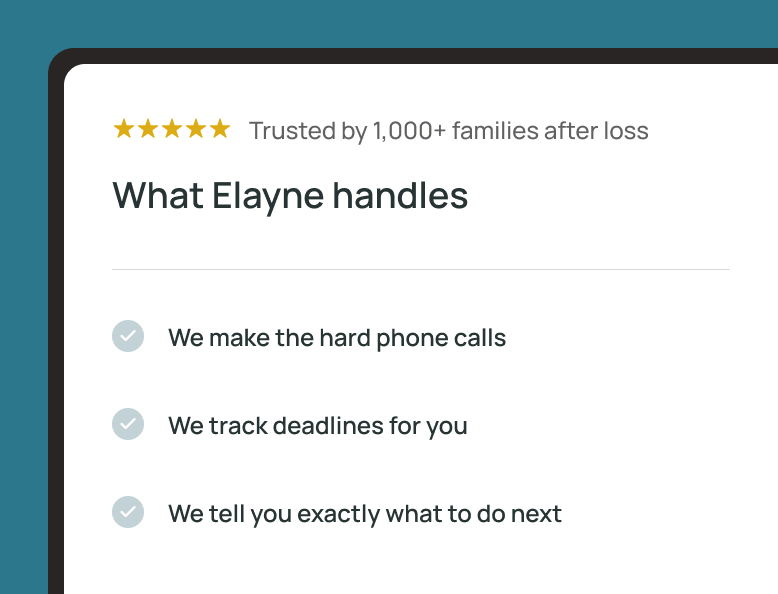Key Takeaways:
- The informant on a death certificate is the person who provides personal and identifying information about the deceased.
- This person is usually a family member but can also be a funeral director or legal representative.
- The information and informant name on the death certificate become part of the permanent legal record.
When dealing with the death of a loved one, the last thing most people expect is to be asked to provide official information for legal documents. One such document is the death certificate, which plays a critical role in settling a person’s affairs. If you’ve been asked to complete or review a death certificate, you may notice a section labeled “Informant.” This label often raises questions, especially during an emotionally difficult time.
In this article, we’ll break down the meaning of the term, answer common questions like “On a death certificate, who is the informant?” and explore why this role is more important than many people realize. We’ll also explain how the information is used, who qualifies to be an informant, and what to do if errors are made.
What Does “Informant” Mean on a Death Certificate?
The informant on a death certificate is the individual who provides key personal and identifying information about the deceased. This information becomes part of the permanent legal record.
So, what does informant on a death certificate mean in practical terms? The informant is responsible for supplying details such as:
- Full legal name of the deceased
- Date and place of birth
- Marital status
- Parents’ names
- Last known occupation
This information is separate from medical data like the cause of death, which is typically provided by a physician or coroner. The informant plays a vital role in ensuring that the death certificate reflects accurate personal history.
Who Is Listed as the Informant on a Death Certificate?
On a death certificate, who is the informant? In most cases, the informant is a close relative, such as:
- A surviving spouse
- An adult child
- A sibling
- Another family member familiar with the deceased’s background
If no family members are available or able to serve in this role, the funeral director or a legal representative may act as the informant.
Who is listed as informant on a death certificate often comes down to who is most familiar with the deceased’s life details and who is available at the time the certificate is being prepared.
Informant Name on Death Certificate: Why It Matters
The informant name on the death certificate becomes part of the official death record. This isn’t just a formality—it carries long-term importance.
Here’s why it matters:
- It is used in legal and financial matters, such as settling the estate, claiming life insurance, and applying for Social Security survivor benefits.
- Government agencies and financial institutions rely on this document for verifying identity and next-of-kin information.
- The death certificate becomes part of historical and genealogical records, meaning future generations may reference it.
Inaccuracies can lead to delays in estate settlement and future confusion for descendants researching family history.
Rights of the Informant on a Death Certificate
A common misconception is that the informant has legal authority over the deceased's estate. However, the rights of the informant on a death certificate are limited.
Here’s what you should know:
- The informant does not receive any legal control over assets, debts, or the estate.
- Their sole role is to provide factual information about the deceased.
- The person with legal authority over the estate is usually the executor or personal representative, as named in the will or appointed by the court.
Being an informant is an administrative responsibility, not a legal appointment.
What If the Informant Makes a Mistake?
Mistakes can happen, especially during times of grief. If there’s incorrect information on the death certificate, it’s usually possible to make corrections, but the process can vary by state.
To correct errors:
- Contact the state’s vital records office.
- Provide supporting documentation, such as a birth certificate, marriage license, or government-issued ID.
- Be prepared for processing fees and wait times.
The sooner mistakes are corrected, the easier it will be to avoid complications in legal proceedings.
Why Do You Need a Death Certificate?
The death certificate is more than just a record, it’s an essential document for handling the deceased’s affairs. Here’s why you need a death certificate:
- To settle the estate and transfer ownership of property
- To claim insurance benefits or pensions
- For Social Security notifications and survivor benefits
- To close accounts, cancel services, and finalize other administrative tasks
Most agencies require a certified copy, and in many cases, multiple copies are needed.
FAQs
1. What does the informant do on a death certificate?
They provide personal information about the deceased, such as full name, birth details, marital status, and parent names.
2. Who is usually listed as the informant?
Typically, a spouse or close family member. If unavailable, a funeral director or legal representative may fill this role.
3. Does being the informant give me any legal rights over the estate?
No. The informant has no legal control over the deceased’s estate. That responsibility belongs to the executor.
4. Can the informant name be changed or corrected later?
Yes, but it requires documentation and a formal request through the state’s vital records office.
5. Why is a death certificate required for estate tasks?
It serves as legal proof of death, enabling the closure of accounts, asset transfers, insurance claims, and more.
The role of the informant on a death certificate might seem minor, but it has lasting legal and historical significance. This individual helps ensure the deceased’s information is recorded correctly and permanently, supporting everything from estate settlement to family history research.
If you’ve been named as an informant, or are navigating post-loss responsibilities, you don’t have to do it alone. Elayne offers tools and guidance to help simplify the complex process of estate settlement. Visit our Automated Estate Settlement platform to learn how we can support you every step of the way.












































